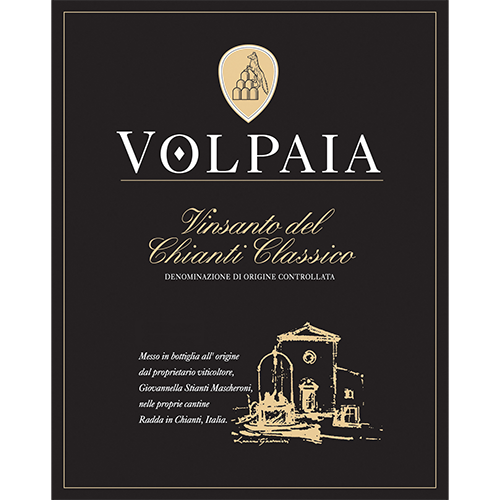
Castello di Volpaia
Vinsanto del Chianti Classico DOC
Since the Middle Ages, Vin Santo (“holy wine”) has been an important part of Tuscan wine history. There are many theories about the origin of its name. A legend from Siena tells of a friar who in 1348 cured the sick with the wine normally used by the brothers to celebrate mass. Word spread that this was a miraculous wine, leading to the name “santo” – although another less picturesque explanation cannot be ruled out, which is simply the association of this wine with its customary use during the mass. The recognition of the DOC Vin Santo del Chianti in August 1997 marked an important stage in the quality evaluation of this highly traditional Tuscan wine.
Produced within the 11th century historic walled village Volpaia, commune of Radda in Chianti. At 2,000 feet, this is one of the highest-elevation wineries in the Chianti region.
- Region
- Tuscany
- Appellation
- Vin Santo del Chianti Classico DOC
- Varietal Composition
- Trebbiano Toscano, Malvasia del Chianti
- Aging
- The highly-concentrated must was then fermented in small caratelli oak barrels already containing madre (“mother”) – a remnant of the thick residue left over from Vinsanto that had already been bottled for five years.
- Alcohol
- 14%
Scintillating amber. It is a full, balanced wine with intense flavors of cane sugar, apricot jam and sultan grapes. Warm and luscious with an almond finish.
James Suckling
93 Points
2017
“Mandarin orange peel and apple pie with lots of nutty aromas and flavors. Refreshing acidity and a delicate mouthfeel with a full body and subtle sweetness.”
— James Suckling, 2023




